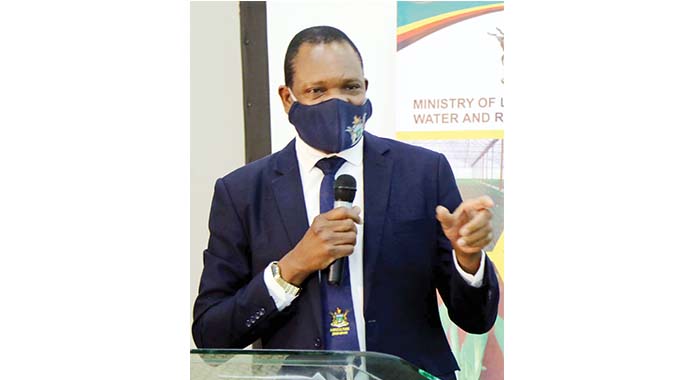Covid-19 lockdown saw spike in GBV cases

Mkhululi Ncube, Chronicle Reporter
INSTITUTIONALISED sexual harassment in public and private organisations and domestic violence are some of the most prevalent forms of gender-based violence (GBV) in the country.
The cases drastically increased during the Covid-19 induced national lockdown, the Zimbabwe Gender Commission (ZGC) revealed during the launch of the decentralised gender forum to provincial levels, in Bulawayo yesterday.
The Gender Forum, an arm of the ZGC was previously centralised in Harare. It is now being cascaded to local communities to enhance the fight against GBV.
ZGC chairperson Commissioner Margaret Mukahanana-Sangarwe said GBV statistics in the country were high.
She said the GBV situation worsened under the national lockdown when victims were locked down with the perpetrators.
“GBV is therefore a grave violation of human rights, regardless of attempts to justify it through either cultural practices or religious beliefs.
“It remains an impediment to the achievement of gender equality and equity. Other forms of GBV include intimate partner violence, sexual violence, rape, sexual harassment, human trafficking, violence in public spaces, so called child marriage and cyber bullying,” she said.
Comm Mukahanana-Sangarwe said domestic violence is the most prevalent form of GBV in Zimbabwe with 18 021 cases in 2019, and over 20 000 cases recorded in each year from 2017 to 2018.
She said even socioeconomic development is affected by GBV.
“As the ZGC, we are deeply worried and concerned with the extent and prevalence of GBV as shown by these alarming figures. The statistics vividly confirm the existence of underlying systemic barriers which continue to stifle gender equality,” said Comm Mukahanana-Sangarwe.
“GBV undermines opportunities for survivors to fully utilise their economic, social and political rights thus creating an unbalanced society which is detrimental to development.
“Surely, GBV should not be tolerated as it can result in injuries and serious physical, mental, sexual and reproductive health problems particularly for women, including sexually transmitted infections, HIV, and unplanned pregnancies.“
She said some public officials who are expected to protect victims are also perpetrators of GBV.
“Musasa Project, has attended to more than 1 200 cases in a single month compared to an average 500.
Padare/Enkundleni Men’s Forum handled reports exceeding 50 in a month during the lockdown period.
“Women also face violence from law enforcement agents who are supposed to provide protection and security.
“Findings on police harassment and abuse by the Spotlight Initiative Baseline survey 2020 revealed that 20 percent of female sex workers in Zimbabwe experienced violence from the police in 2015,” said Comm Mukahanana-Sangarwe.
“In addition, court officials and health personnel also abuse women and girls with disabilities by denying them sexual reproductive services or verbally abusing them when they seek services.
“The Commission has been dealing with several cases of violence and harassment in the workplace.
“This has included sexual harassment at tertiary institutions, Government ministries, departments and agencies and the private sector.
“The Commission has also received cases of gender-based violence, in the form of sexual harassment, rape and child marriages happening in the faith-based sector.”
She said the ZGC is lobbying for the adoption of a Gender Equality Act which will address some of the institutionalised domestic violence issues.
She challenged communities to shun violence against women, men and children as the country heads towards the 16 Days of Activism Against GBV which, this year, will run under the theme: Orange the World, Fund, Respond, Prevent Collect from tomorrow to December 10. — @themkhust









Comments